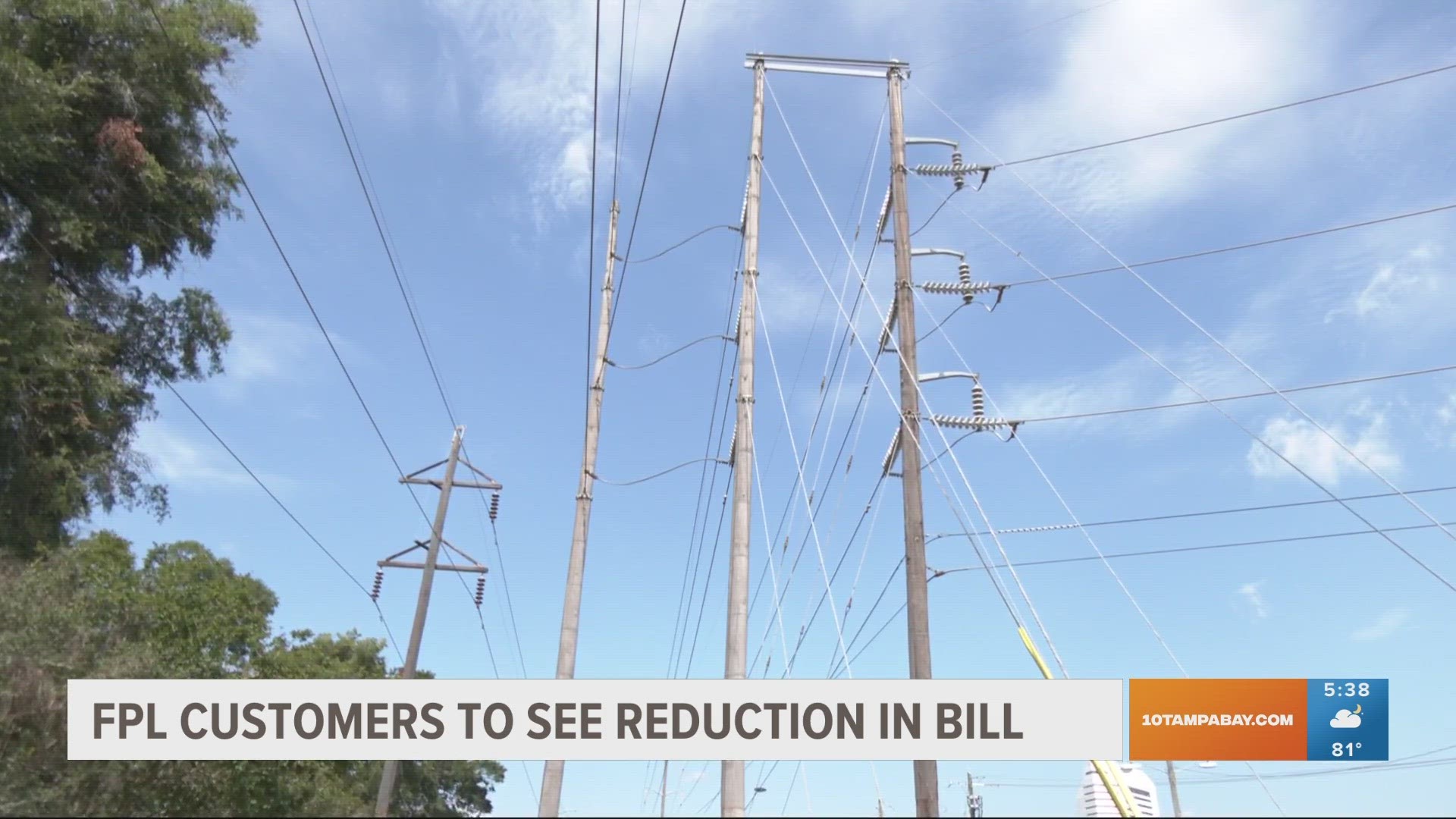TALLAHASSEE, Fla. — Florida Power & Light customers will get a break starting in July.
State regulators Tuesday approved a plan that will trim FPL customers’ bills because of lower-than-expected costs of natural gas used to fuel power plants.
The approval by the Florida Public Service Commission came after more than a year of volatility in fuel prices that helped drive up bills for customers of FPL and other utilities — but in recent months has allowed FPL to begin passing along savings.
The plan involves $256 million in reductions that will start to be applied to FPL customers’ bills in July, after regulators also approved $379 million in reductions that took effect in May. Earlier in the year, FPL bills increased because of a combination of factors, including fuel costs and hurricane-related expenses.
“We are committed to keeping bills as low as possible for our customers,” Armando Pimentel, president and CEO of FPL, said in a prepared statement after Tuesday’s commission approval. “With fuel prices moderating, we are pleased to pass along additional savings to our customers.”
In addressing rates, utilities rely on a benchmark of residential customers who use 1,000 kilowatt hours of electricity a month. Because of a merger with the former Gulf Power in Northwest Florida, FPL has two sets of rates.
Under the plan approved Tuesday, customers who are in areas traditionally served by FPL and use 1,000 kilowatt hours of electricity will see their monthly bills decrease from the current $139.95 to $136, according to the utility and the commission. That remains higher than bill amounts early in the year, when they were $125.39 in January and $129.59 in February before jumping to $144.38 in April.
Customers in Northwest Florida who use 1,000 kilowatt hours will see their bills decrease in July from $158.86 to $154.91.
Utility bills are made up of a combination of factors, such as base rates, fuel costs and storm-related costs. Regulators each fall approve projections of how much utilities can collect from customers in the following year for fuel costs.
But utilities can seek mid-year changes if fuel costs end up being higher than expected, as they were in 2022, or lower than expected, as they have been in recent months.
Commission Chairman Andrew Fay on Tuesday raised questions about the possibility of additional fuel-cost reductions later this year.
“I think the tougher question, just being one as to what the future holds,” Fay, said. “And I would imagine the response to that would be it will depend on what the markets do and how the economy fluctuates.”
FPL official Ken Hoffman told the commission that the utility “seized the opportunity while we had it” to reduce bills after seeing lower fuel prices.
FPL also plans to carry over $103 million in projected fuel-cost savings and apply that to customer bills in 2024, according to a commission staff recommendation. Hoffman said that would help offset hurricane-related costs that customers will continue facing in 2024.

